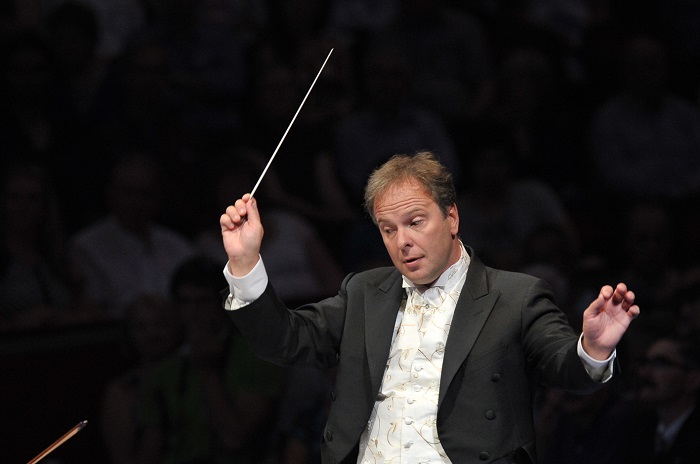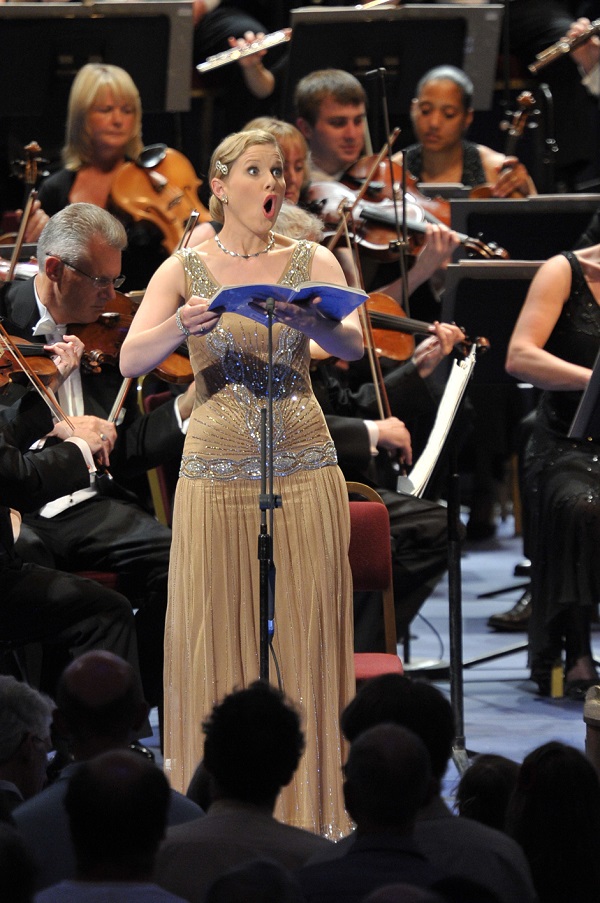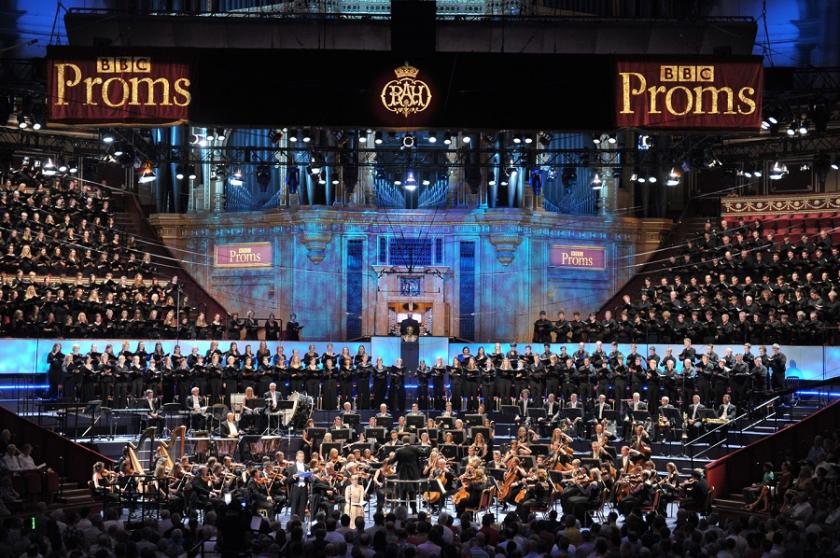What a way to open. Vaughan Williams’s A Sea Symphony is exactly the kind of work that the BBC Proms and the Royal Albert Hall were made for, and as the surging, over-generous music and Walt Whitman’s ecstatic poetry ring out across the space it’s hard not to feel just a little bit of heart-swell. Add to that conductor Sakari Oramo making his debut as Chief Conductor of the BBC Symphony Orchestra and you have a First Night to rival the excitement of the Last Night.
What a shame then that it was such an uneven evening of music. Like Britten and Vaughan Williams’s stormy seas, the highs and lows chased and tussled with one another, leaving us thrilled by the scope of the symphony but cheated by the loss of the first half’s smaller-scale thrills.
Few pianists have the musical wit of Stephen Hough
It was bold to open with a new commission from Julian Anderson, but sadly his five-minute tone poem Harmony for orchestra and choir had little to add to the Englishness already programmed from his predecessors. Written in the familiar language of 20th century English lyricism, the work is blighted by a fussy text from Richard Jefferies' The Story of My Heart. The words muse incoherently on the essence of time, but a lack of clarity in the diction of the BBC Symphony Chorus meant that at least we didn’t have to ponder them too closely. High string and soprano shimmer gives way to cluster chords and then to a fragmented, rhythmic section. It’s all pleasant enough, but not quite the “flash of revelation” I was hoping for.
 Few pianists have the musical wit of Stephen Hough, and his understated English elegance met Slavic passion with delicious friction in Rachmaninov’s Rhapsody on a Theme of Paganini, brilliantly programmed alongside Lutoslawski’s Variations on a Theme by Paganini. This latter is so cogent, so engaging a work as to provide the perfect launch of the composer’s anniversary year at the Proms (he’s generously represented in five more concerts, and with good reason), even if it was almost at the expense of Rachmaninov’s rather weightier treatment.
Few pianists have the musical wit of Stephen Hough, and his understated English elegance met Slavic passion with delicious friction in Rachmaninov’s Rhapsody on a Theme of Paganini, brilliantly programmed alongside Lutoslawski’s Variations on a Theme by Paganini. This latter is so cogent, so engaging a work as to provide the perfect launch of the composer’s anniversary year at the Proms (he’s generously represented in five more concerts, and with good reason), even if it was almost at the expense of Rachmaninov’s rather weightier treatment.
Playing against the grain of the Rachmaninov, Hough found a throwaway charm to the virtuosity and an ease to the lyric passages that refreshed this war-horse. Under Oramo (pictured above right), however, the musicians of the BBCSO weren’t entirely on board with their conductor's interpretation, and brass blotted and smudged their interjections into Hough’s solo passages, while strings disagreed amongst themselves. It was an issue that also emerged in Britten’s Four Sea Interludes, which lacked the impulsion of Ed Gardner and English National Opera’s performance last year. Storm was scrappy and a bit of a scramble, and had little connection to the too-restrained Dawn or Moonlight, where orchestral textures were beautifully translucent but lacking the anchoring weight needed from the strings.
 But redemption was at hand in A Sea Symphony, where the forces suddenly seemed certain of what they were doing, and Oramo finally showed off his ability to craft long-form structure after a choppy sequence of lollipops. No one writes a triplet quite like Vaughan Williams, and under Oramo’s direction the BBCSO found endless expressive variations on this throbbing rhythmic idée fixe. The choirs were joined by soloists Roderick Williams and Sally Matthews (pictured left). whose duet in The Explorers was transfixing, drawing us all into their tiny, intimate musical space. A similar magic happened in the fleeting moment for semi-chorus, where upper voices from the BBC Proms Youth Choir coaxed a warm and sleepy audience into sudden focus. It would have been lovely to hear more from the Youth Choir, who felt short-changed here, with little of the opportunity to show the extent of their quality that A Child of Our Time offered so strikingly last year.
But redemption was at hand in A Sea Symphony, where the forces suddenly seemed certain of what they were doing, and Oramo finally showed off his ability to craft long-form structure after a choppy sequence of lollipops. No one writes a triplet quite like Vaughan Williams, and under Oramo’s direction the BBCSO found endless expressive variations on this throbbing rhythmic idée fixe. The choirs were joined by soloists Roderick Williams and Sally Matthews (pictured left). whose duet in The Explorers was transfixing, drawing us all into their tiny, intimate musical space. A similar magic happened in the fleeting moment for semi-chorus, where upper voices from the BBC Proms Youth Choir coaxed a warm and sleepy audience into sudden focus. It would have been lovely to hear more from the Youth Choir, who felt short-changed here, with little of the opportunity to show the extent of their quality that A Child of Our Time offered so strikingly last year.
As the season continues we can hope and expect that Oramo and the BBCSO find their mutual stride. As a starting point this was promising enough, but I’m hoping for much, much more by season’s end.














Add comment